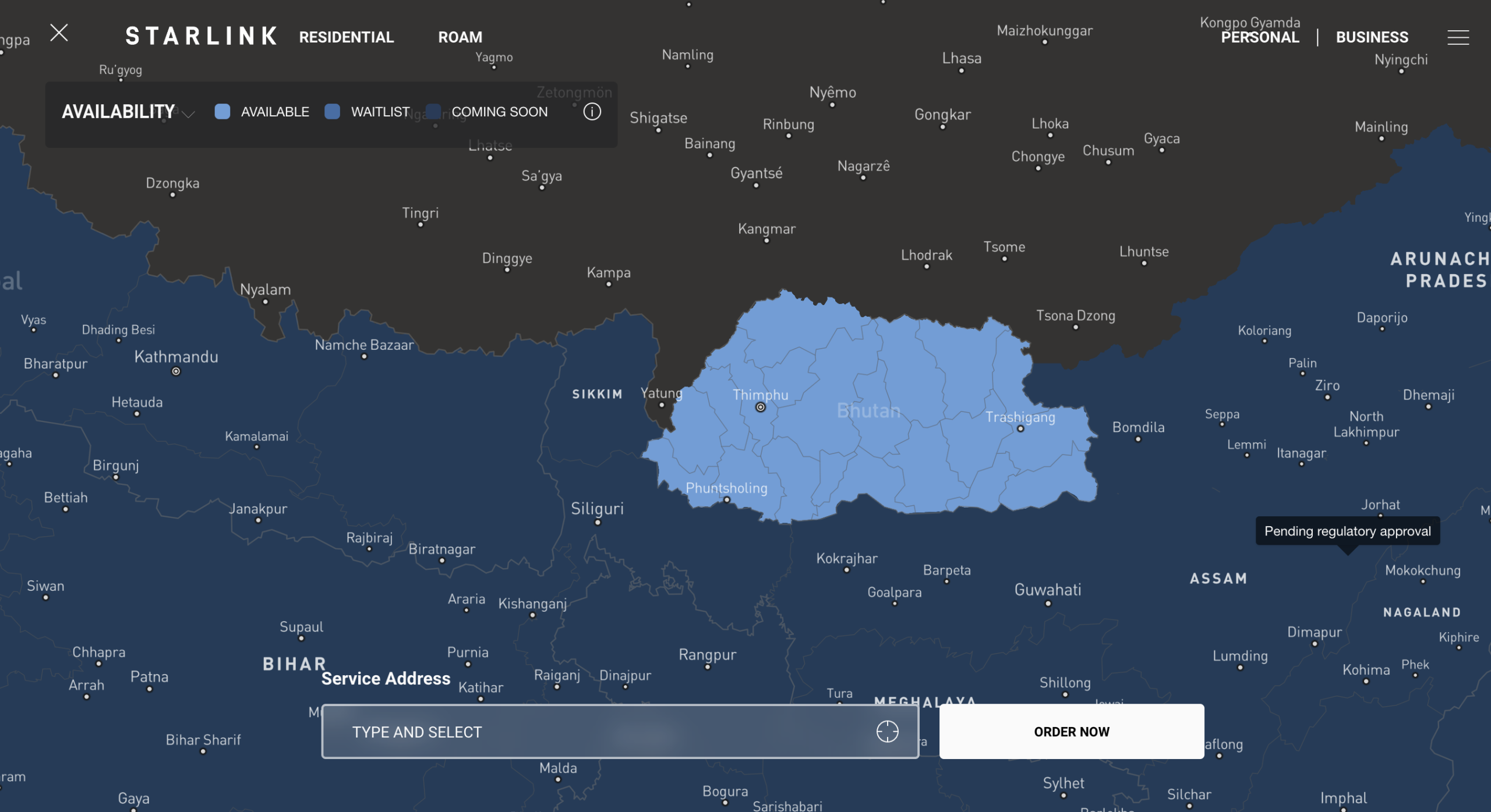
Elon Musk’s Starlink is expanding its satellite internet services worldwide. The latest country on its list is Bhutan. While this is great news for the small Himalayan nation, China sees it differently.

Beijing considers Starlink a security and strategic challenge. This is not just about internet access; it’s about global influence, military concerns, and digital dominance. China is paying close attention to Starlink’s expansion in Bhutan.
Similar discussions in Nepal regarding Starlink have elicited security concerns from both China and India, highlighting the geopolitical sensitivities associated with the deployment of such technologies in the region.
China’s Security Concerns
China has always been cautious about foreign technology operating near its borders. Starlink is owned by SpaceX, a U.S. company with ties to the American government. Beijing fears that Starlink could be used for surveillance or military communication, especially since it played a key role in Ukraine’s war efforts.
If Starlink provides internet to Bhutan, it could also support U.S. interests in the region. This makes China uneasy. Beijing prefers its neighbors to use Chinese technology rather than relying on U.S.-backed services.
Security and Military Implications
The Chinese military has expressed apprehension that Starlink’s extensive satellite network could enhance the U.S. military’s operational capabilities. Analyses suggest that the integration of Starlink with U.S. defense systems might improve data transmission speeds and resilience, thereby strengthening the U.S. military’s “kill chain” efficiency. This perspective is informed by observations of Starlink’s role in providing communication support during the Ukraine conflict.
Geopolitical Tensions in the Region
Bhutan shares a border with China, and both countries have had territorial disputes. China does not want any foreign influence in the region. If Bhutan starts using Starlink, it could create a stronger link between the country and Western technology firms.
China also sees this as part of a bigger trend. Recently, Nepal was also in talks about adopting Starlink, which raised security concerns for both China and India. If multiple neighboring nations start using U.S. satellite internet, Beijing could feel digitally surrounded.
China’s Own Satellite Internet Plans
China is not just watching from the sidelines. It is working on its own satellite internet network to compete with Starlink. Called the “Thousand Sails Constellation,” this project aims to provide internet coverage and counter the influence of foreign satellite networks.
By launching its own system, China hopes to reduce dependency on Western technology. It wants to control its own digital space rather than let foreign companies dominate the skies.
Is Starlink Really a Threat to China?
For now, Starlink in Bhutan does not pose an immediate security threat. However, China is looking at the bigger picture. The more countries adopt Starlink, the less control China has over digital communications in the region.
Beijing prefers its neighbors to rely on Chinese technology. If Bhutan and others continue to use Starlink, China might push harder for its own satellite internet expansion.
What’s Next?
Starlink’s entry into Bhutan is about more than just internet access. It is part of a global tech race where China and the U.S. compete for influence. China sees Starlink as a challenge to its digital control, especially near its borders.
As satellite internet becomes more common, expect China to take stronger steps to promote its own network. The battle for internet dominance has moved beyond the ground—it is now being fought in space.
